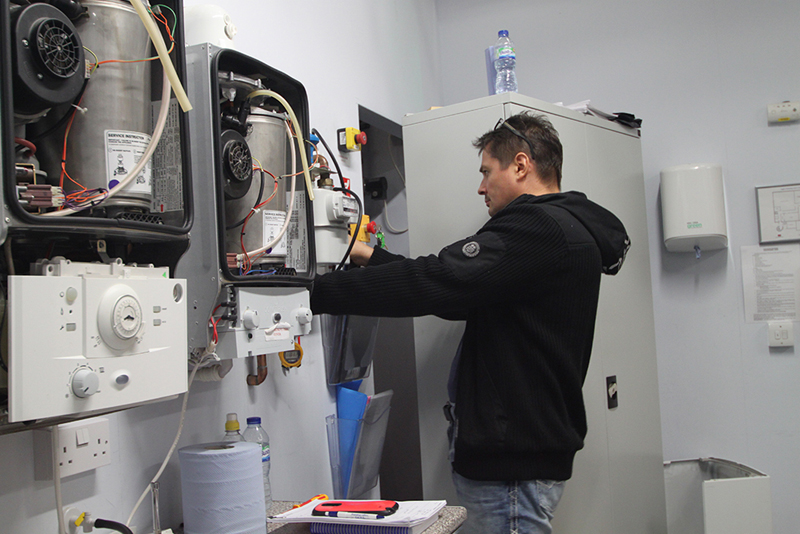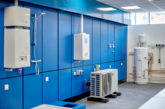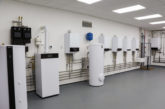
Upskilling can bring many benefits to forward-thinking businesses looking to thrive in the ever-changing building-services sector. Mark Krull from Logic4training explains.
With so much change happening within the building services sector, it is never too late to gain new skills and expand your business offering.
We are facing a monumental shift in the way we heat our buildings over the next 30 years as we head towards net zero by 2050. Forward-thinking businesses need to evolve alongside industry changes to thrive, becoming multi-skilled and flexible enough to face the challenges of the future.
Business benefits
Future-proofing your business is just one of the many benefits of investing in ongoing training:
Happy and productive workforce – Research shows that learning new skills increases job satisfaction. Creating a culture where staff feel valued and connected to the success of the company leads to increased motivation and productivity.
Staff retention – Businesses that are committed to staff training and career development are more likely to retain good staff and attract the best new talent.
Fill skills gaps – There is a longstanding skills shortage within the building services sector. As well as injecting fresh skills and ideas into your business, upskilling offers the opportunity to fill gaps in the wider sector, taking on more complex (and better paid) contracts that require specific skill sets.
Manageable route to expansion – Training up existing staff with transferable skills means pay can be scaled as expertise grows; much less risky than paying an experienced operative from day one.
Become multi-skilled
There are lots of upskilling options available:
Becoming Gas Safe Registered – Becoming Gas Safe registered could increase your capacity and income. Many multi-skilled building services engineers start out their careers in plumbing and there are specific training routes to ACS registration designed for candidates with transferable skills.
Domestic electrical skills – Most plumbing and heating installers will need to carry out some minor electrical work in a secondary capacity, such a wiring up a gas cooker, boiler or shower. Part P training courses are ideal for experienced installers, giving them the necessary skills to carry out minor domestic electrical works without relying on sub-contractors.
Commercial changeover – Ideal for domestic installers seeking a challenge, commercial changeover qualifications enable operatives to work on larger gas appliances, as well as options to specialise in certain areas; including catering and commercial laundry – ideal for work in schools and hospitals.
Sustainability/energy efficiency – As electricity becomes greener, heat pumps offer a low-carbon alternative to conventional boiler driven heating. Consumer demand for heat pumps is set to rise, so getting trained up could give heating installers a valuable head start. Other growing markets include heating controls, smart meters and energy efficiency.
Bespoke training – We work with building services businesses to identify their skills gaps, developing and delivering bespoke training to meet company needs.
With so many factors at play, it will be the businesses that embrace the changes within the building services engineering sector that succeed in the years to come.













